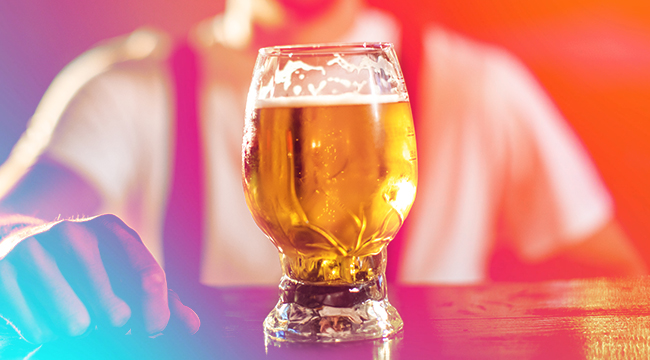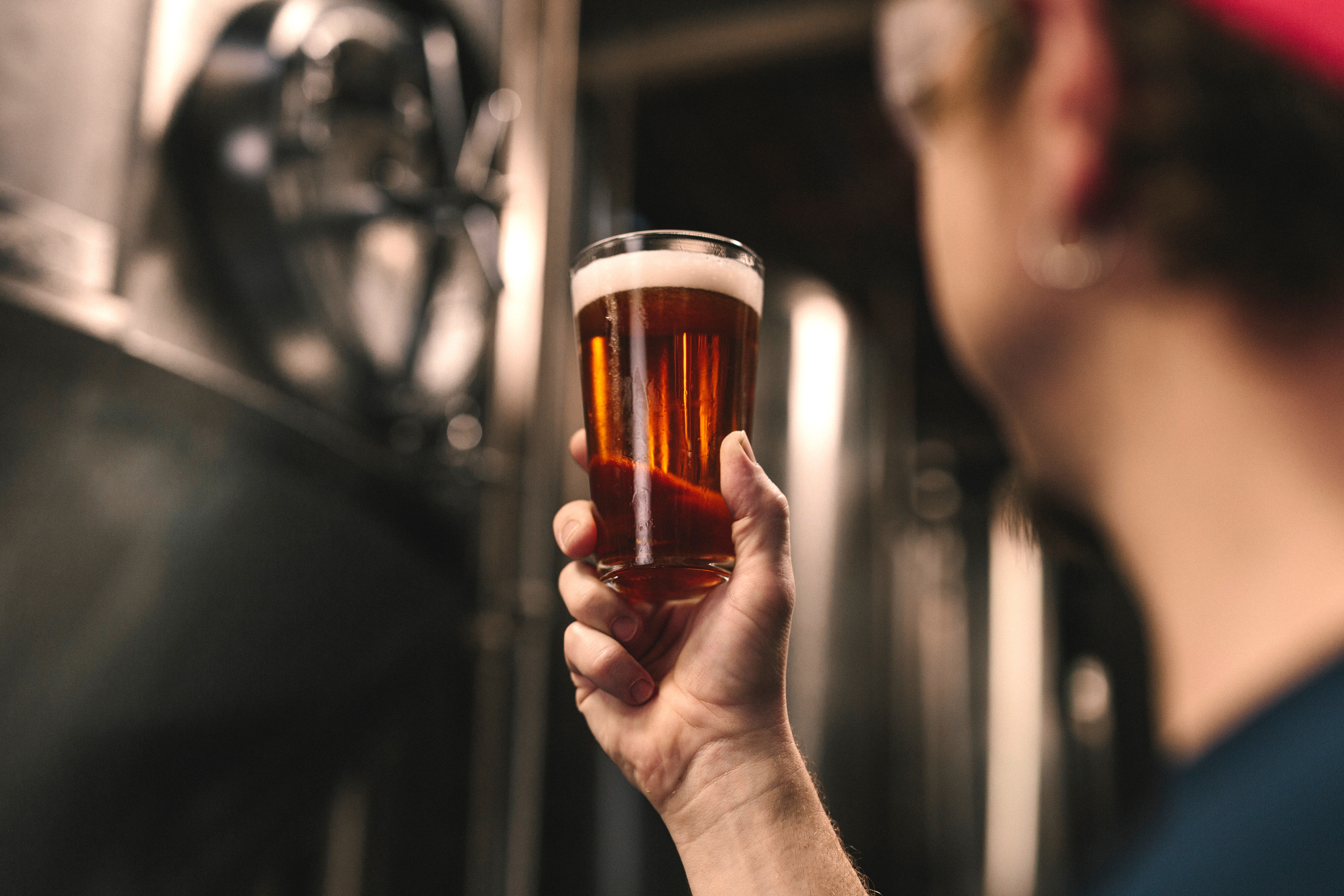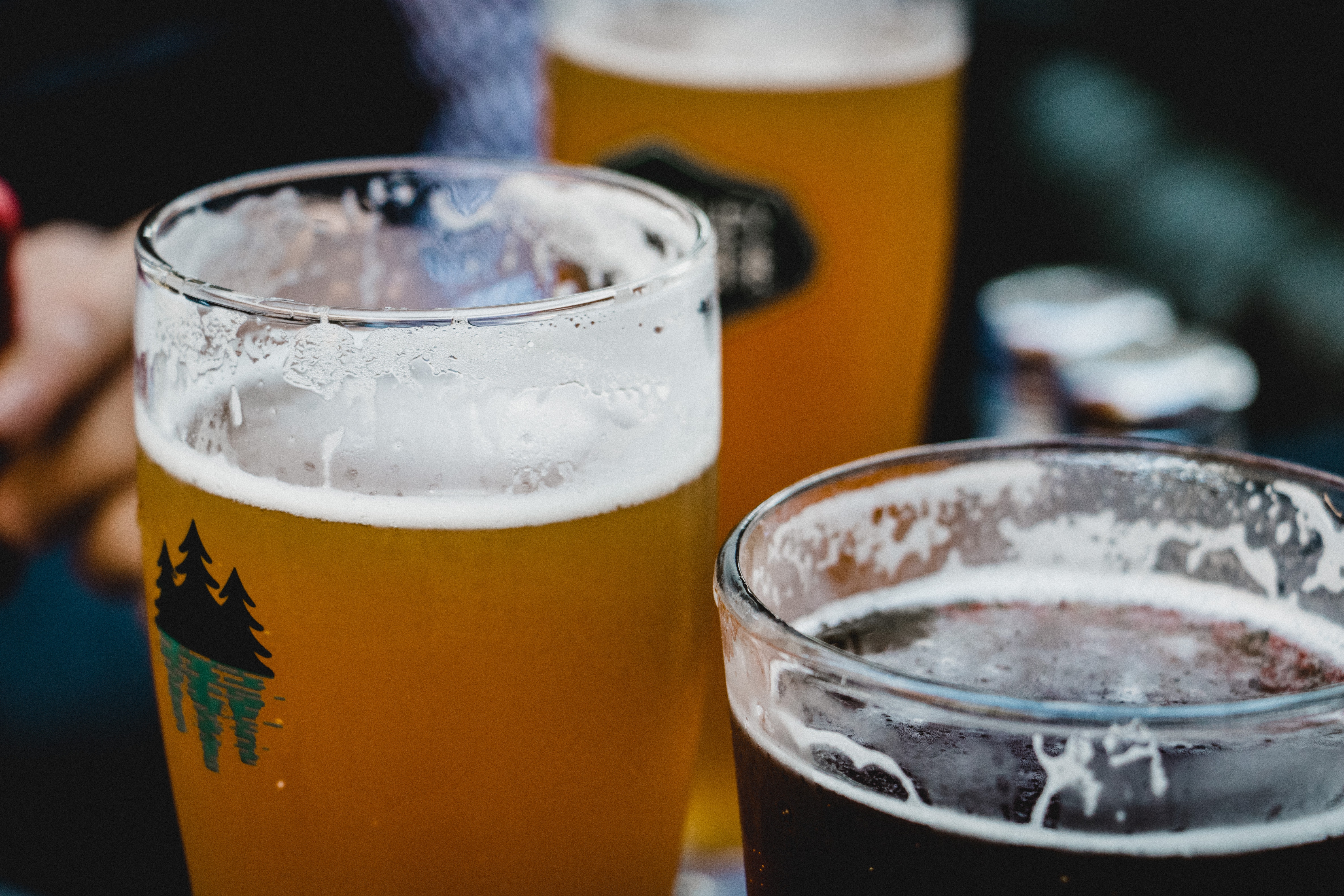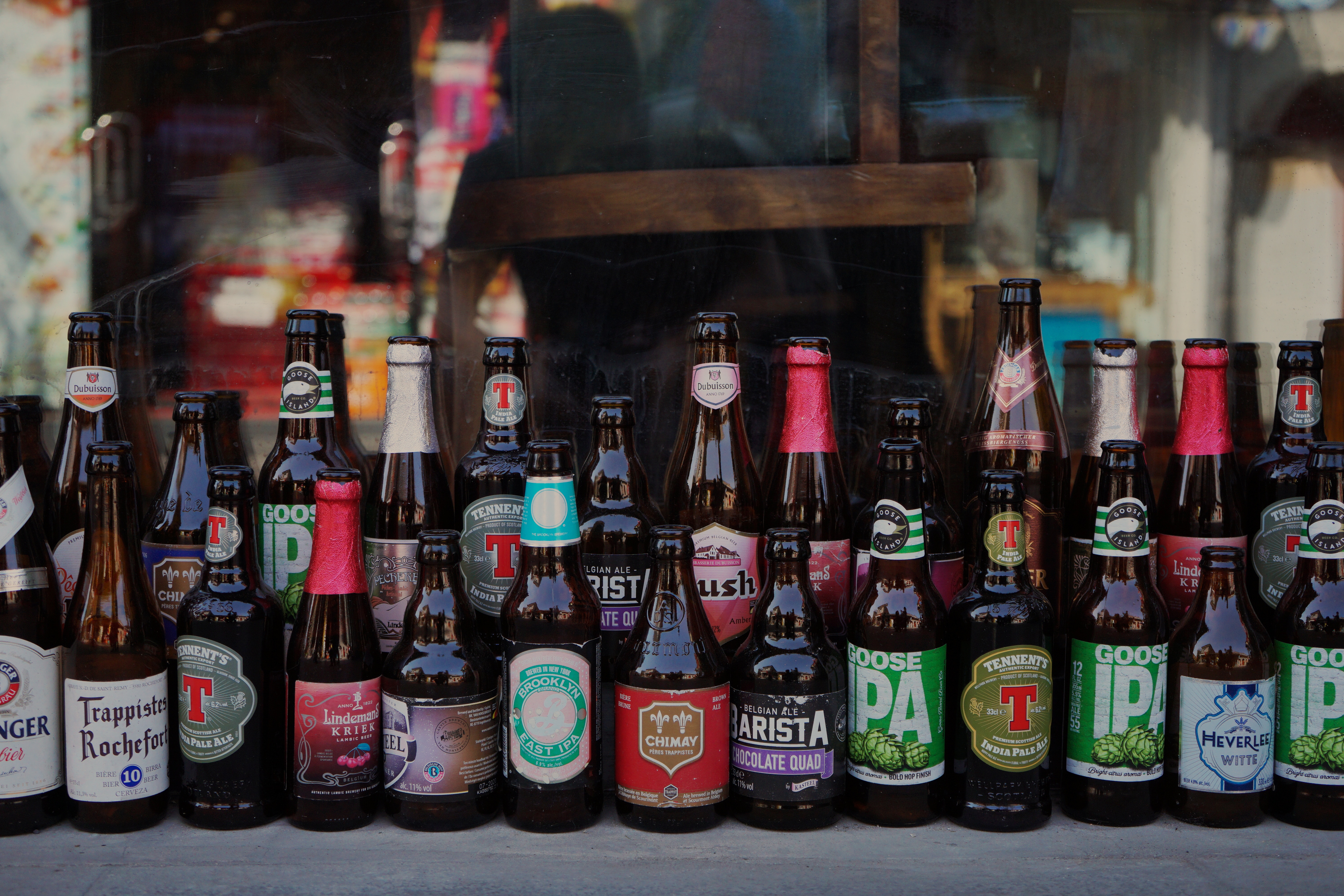
The question of whether or not to age a beer has no simple answer. Some beer drinkers and brewers will tell you that beer only “tastes best” when it’s fresh. That’s probably not true. Beer is far too wide a category to have many “all or nothing” answers. In fact, plenty of beers are aged (for varying times) before they even reach the bottle and benefit from further aging after they’re bottled. As with almost everything in the food and drinks world, misconceptions, nuances, and exceptions to every rule are at play — making the whole “is beer okay if it’s old?” question a muddled one with no simple solutions.
There are a few factors that make this issue confusing. First, much of the conversation centers around a misunderstanding of the difference between “aging” versus degradation (more on that later). Second, the boom of the craft beer industry has led to a reliance on the hop-forward palates of (many of) its proponents. If you want those huge hoppy notes, you need to drink that beer fresh — generally speaking. Further complicating things, small-time craft brewers often lack the space to age beers at all (even lagers).
Point being, it gets messy. But hey, that’s why we’re here. Hopefully, the info below can give a better understanding of why aging beer (or even “old beer”) can be transcendent and also why fresh beer has its place too.
Why Do We Drink Beer When It’s Fresh?

Let’s very broadly overview the process of making beer to help define what’s fresh and what’s not. Malted barley (or other grains and cereals) are milled into a grist. Next, that grist is transferred to a mash tun where hot water is added and sugars are extracted, creating a wort. That wort is then lautered in a lauter tun where the grist is removed and more water is added to pull more sugars — that’s called sparging. The sugary wort is then boiled, hopped, and cooled down for fermentation. That goes into the fermentor. Yeasts are added. And they start to eat sugars to create boozy beer.
But we’re not quite there yet. The last step is conditioning. This is where the yeasts have finished eating sugars (for the most part) but have yet to really dial in the flavors the brewer wants for that beer style. Ale yeasts tend to work faster, meaning an ale can be ready for bottling/drinking within a week or so. Lager yeasts, on the other hand, take a lot longer to absorb unwanted flavors. Some American lagers sit conditioning for up to 20 days. Some German lagers rest for up to a half-a-year.
Right from the gate, we’re already in muddled territory. Is lagering a beer for six months before releasing it “aging?” Technically, maybe not. But storing something for months certainly feels like aging.
Let’s operate off the idea that a classically conditioned beer is a “fresh” beer. This is when certain flavors, especially from the hops, are going to be at their height. Certain brewers aim for particular tastes much in the same way chefs aim for certain tastes in dishes. They want to serve something that has a distinct matrix of flavors. Combinations from hops like juicy tropical fruits with buttery creaminess or pine resins with cannabis levels of dank are both common directions to go in when we’re talking IPAs, for instance. And, if that’s what the brewer is aiming to serve, that should always be respected and enjoyed as freshly as possible to achieve those ends.
Hops, more than anything else in beer, is what fades over time. That being said, as the hops fade, other flavors start to come forward and bloom in the beer, depending on the style, malts, hops, and intent of the brewer.
What Does Aging Do To Beer?

First and foremost, know that there are no hard and fast rules here. IPAs — which most brewers insist you drink as fresh as possible — are a style that was specifically designed to be aged for months and months, at sea. Yet, in 2019, you’ll rarely find a properly aged IPA anywhere (outside of historical recreationist brewers).
Allow us a quick rabbit hole. India Pale Ales were specifically over-hopped so that by the time the beer reached India from Britain, it’d still have some oomph to it. When the style was resurrected in the late 20th century, microbrewers looked to IPAs as a counterpoint to macro beers but lacked resources to store it for a long ass time. So it was served fresher and fresher. It’s not a matter of one way being “correct” or not. It is what it is. Times, along with palates, change. But it has to be said, that hoppy IPA is a modernist interpretation of a style built specifically to be aged.
Okay, so back to the details. The only good beer isn’t fresh beer. That’s not saying beer can’t go bad, or skunky if you want to get all technical about it. But there’s a huge difference between a skunked beer and an aged one.
When beer drinkers or brewers proselytize about fresh beer being the only way to drink beer, what they’re often trying to avoid is the ravages of lightstruck beer. When light and warmth overwhelm a bottle of beer, the molecules of the hops actually degrade to the point that they start to taste, well, shitty. Beer in clear glass bottles or even light green bottles is notorious for getting lightstruck.
Without getting too much into the science, this is about acids in hops getting photo-oxidized and ruining the flavor and flattening out the beer. This occurs when any beer is left in the sun without protection or when lightly colored bottles are used, allowing light to seep in. This is stopped by simply putting beer into dark brown bottles and cans (or kegs) and protecting it. That’s not to say hops won’t degrade in a can or keg, they will. It’s just not the same chemical reaction.
All beer can be aged, theoretically. Wild beers, lambic, stouts, porters, ales, (some) lagers, smoked beers, gueuze, and weisse have all been aged by plenty of brewers over the years. Some of these beers need to be aged to simply be called what they are. Lambics are aged for years and gueuze are blends of varyingly aged lambics that are then aged again. Imperial stouts and smoked lagers are often aged for years to bring out flavors. And, again, lagers need to be lagered in a cool, dark setting before they hit the glass.
In short, yeasts and sometimes bacteria are still working in the beer. The more time those microbes have to work, the more they can help that beer develop. Still, it’s important to remember that there are always exceptions to all of this.
So Does Beer Need To Be Fresh Or Not?

We know that beer can go bad. So what happens when a beer is aged? Let’s keep this simple. Wine, whiskey, rum — we all know that when you age those drinks that some flavors fall away and some flavors develop. That’s completely true in beer too.
Take a massive Imperial Stout. When it’s bottled, it’ll taste one way. Maybe it’ll be a little more hop-forward while presenting as something a little more fizzy with a hefty alcohol underlayer. Let’s say that you run an experiment by putting a case of that very beer in your cellar. Then, every year over the next 20 years, you take out a bottle and open it up. Every single year that beer will have developed. Hops will mellow. Notes of spice or coffee or caramel will peak. The alcohol will ebb and flow. The viscosity will change. This is due to that beer being alive until the moment you pop that cap.
This is as true of stout as it is of, say, a pale ale or a lager. Aging, as simply as we can put it, lets beer grow and develop into something entirely new. Flavors are amped up or fade away and, often, neither of those things are bad. We’re not saying it’s always going to be a mind-blowing experience but, more often than not, it’ll be a delicious or at least interesting one.
Our advice, listen to brewers and drink the beer the way they devised it to be drunk. But then again, maybe buy some bottles and throw them in a cellar to see what happens in a couple of years. You might be pleasantly surprised (just make sure that no light can get in and it stays cool). After all, beer is an exploration of art and science and the variations and permutations are — above all things — what makes it so special.






